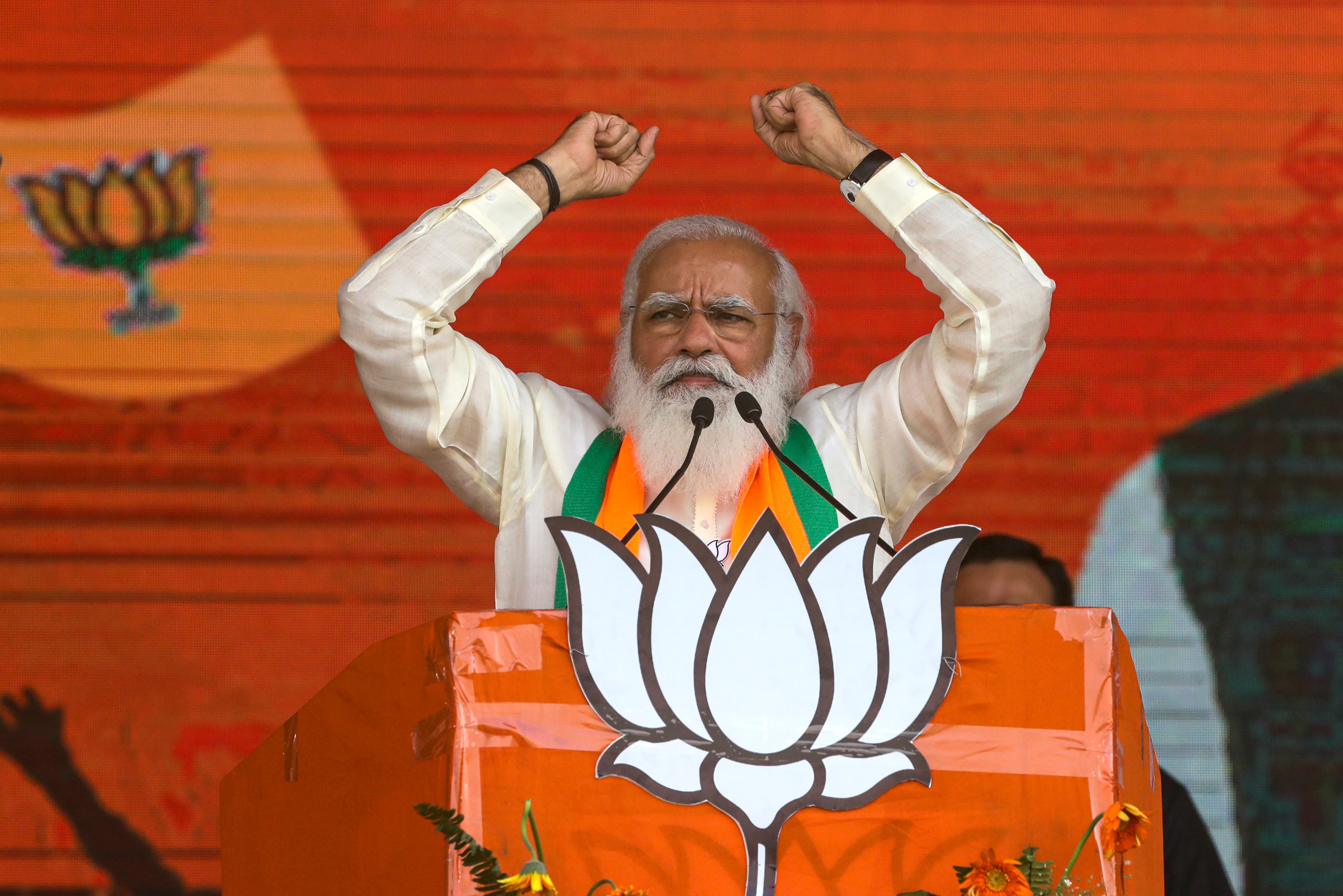How India secured agreement on movement of people from UK
Boris Johnson desperate to beat EU to trade deal with New Delhi

India has secured a crucial agreement that allows the movement of its citizens to the UK, which in the post Brexit era is desperate to beat the European Union to a trade deal with New Delhi.
After a virtual summit on Tuesday, the prime minister, Boris Johnson, and his Indian counterpart, Narendra Modi, announced their intent to “negotiate a comprehensive Free Trade Agreement (FTA)”, continue removing trade barriers and move towards doubling bilateral trade by 2030.
The two countries signed a “memorandum of understanding on India-UK Migration and Mobility Partnership (MMP)” which will facilitate legal movement of students and professionals and enhance cooperation between them in addressing illegal migration.
The memorandum leads to a new scheme for “exchange of young professionals under which every year up to 3,000 young Indian professionals can avail employment opportunities in (the) UK for a period of two years without being subject to labour market test.”
It is a major win for India as the UK has been tightening the rules for foreign professionals to control immigration. India already has a strong presence in the UK with a 1.6 million-strong diaspora.
Harsh V Pant, professor of international relations at King’s College London, told The Independent that for India, the issue of “mobility of professionals is important and I think that has always been a significant part of its engagement with the UK.”
“The discussions have been about how many young (Indian) professionals can go to Britain while the UK is tightening the rules over the past few years. In this summit, India has once again tried to address this,” he said.
The other major highlight of the summit was the steps aimed at a trade agreement. India’s discussions with the EU for a free trade agreement (FTA) has been pending for years now and the UK wants to steal a march over the European block.
After the summit, a joint statement said the two leaders agreed on “a common vision of a new and transformational Comprehensive Strategic Partnership between India and (the) UK” and adopted an ambitious roadmap to 2030 to steer cooperation for the next 10 years.
They announced that the two nations are looking at an “interim trade agreement to deliver early gains.” According to the statement, the two leaders said that an FTA could unlock the full potential of their “trade and commercial relationship, boosting jobs, investment and exports.”
In 2019-20, the India-UK merchandise trade was at around £11.11bn with the trade balance in favour of India. In 2019, India was the second-largest source of foreign direct investment (FDI) in the UK. The UK is the sixth largest inward investor in India.
Prof Pant said “if at all there is a time for a trade agreement between India-European Union and India-UK it is now. There is a good chance that it can be accomplished … also, there is a bit of competition between the EU and the UK right now.”
“It is more so because both the UK and India are at a stage where they are willing to take chances to get a trade agreement. Both sides are more realistic right now and are aware of the constraints,” he said.
The foreign policy expert also said it is important to realise is that both countries have decided to take a “step by step approach.”
“The plan for trade deal between India-UK certainly looks very promising as there are definite timelines attached to it,” he said.
Since the UK pulled out of the EU, it has been involved in a race to strike trade deals with other countries, including India.
On Tuesday, Brussels hailed “clear momentum” on the India-EU trade deal, which has been stuck for several years, saying there are chances of talks on a free trade agreement with India to be confirmed within this week.
It follows a call between the European Commission president, Ursula von der Leyen, and Mr Modi.
The roadmap 2030 for India-UK future relations launched during the summit said they confirm their intent to finalise the pre-negotiation scoping phase for a comprehensive free trade agreement by the end of 2021.
Join our commenting forum
Join thought-provoking conversations, follow other Independent readers and see their replies
Comments
Bookmark popover
Removed from bookmarks